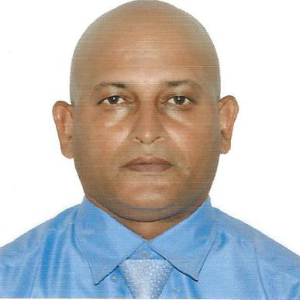Title : Nanotechnology and Nanomaterials
Abstract:
Nonotechnology has been a rapidly growing field of advanced science at the inception of this century. Nanotechnology & Advanced Materials Research of Advanced materials, polymers, principally revolves around endeavours to plan materials at a sub-atomic level to accomplish alluring properties and applications at a naturally visible level. Nanomaterials science and nanotechnology can be used for the advancement of technologies, ranging from communication and information, health and medicine, future energy, environment and climate change to transport and cultural heritage. Nanomaterials will lead to a new approach to manufacturing materials and devices. Faster computers, advanced pharmaceuticals, controlled drug delivery, biocompatible materials, nerve and tissue repair, crackproof surface coatings, better skin care and protection, more efficient catalysts, better and smaller sensors, even more efficient telecommunication. For example, a low risk solution using antibody modified bismuth nanoparticle, in combination with an X-ray dose equivalent to a chest X-ray specifically, has been shown to kill the common bacterium Pseudomonas aeruginosa in a set up designed to resemble a deep wound in human tissue. Nanosized gold particle could catalyse the oxidation of carbon monoxide better than anything previously known. Heparin functionalized nanoparticles have been use for targeted delivery of anti-malarial drugs. Heparin is abundant and cheap, compared to treatments that involve antibodies, an important consideration, since malaria is most common in developing countries. A bone repairing nano-particle paste has been developed that promises faster repair of fractures and breakages. DNA containing two growth genes is encapsulated inside synthetic calcium phosphate nanoparticles. In a remarkable demonstration of the extreme limits of nanoscale engineering, researchers have used the tip of a scanning tunnelling microscope to cleave and form selected chemical bonds in a complex molecule. Many medicinal and industrial endeavours have seen the use of Nanotechnology. Nanoparticles can attach to SARS COV-2 viruses, disrupting their structure and so kill the virus. These and other more recent advances in nanotechnology will be presented at this conference.
Audience take-away:
- Most of the audience are nanotechnologists and thus can incorporate part of my research in their work or apply them to their work
- The audience will be more knowledgeable at work in nanotechnology. This research faculty can use part of my research to expand their research. However, they must reference my work. It will improve the accuracy of a design, or provide new information to assist in a design problem.



